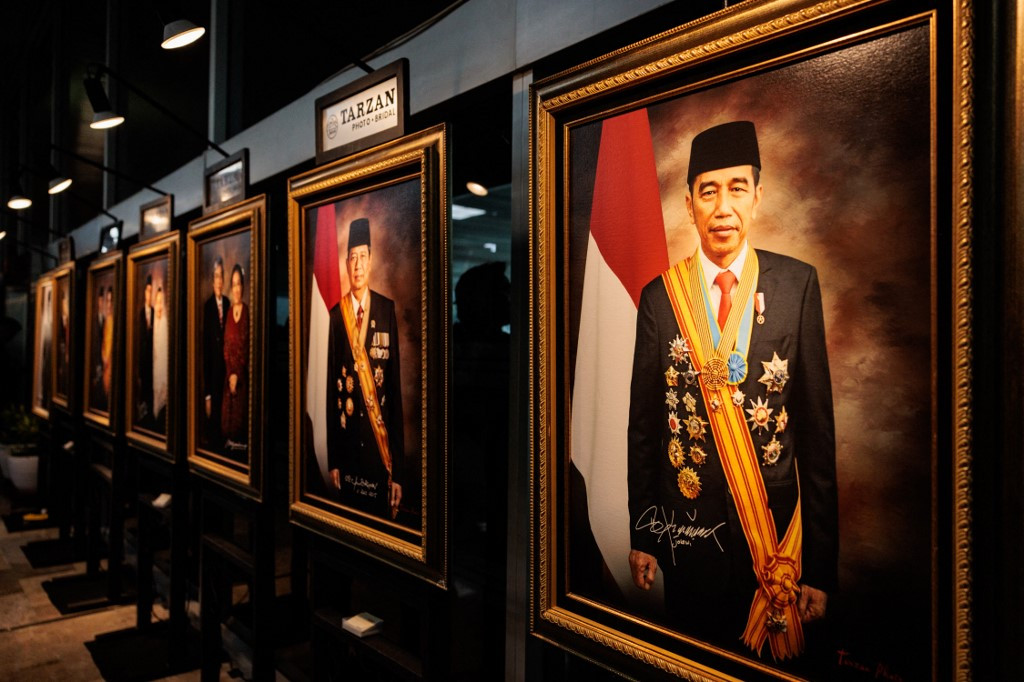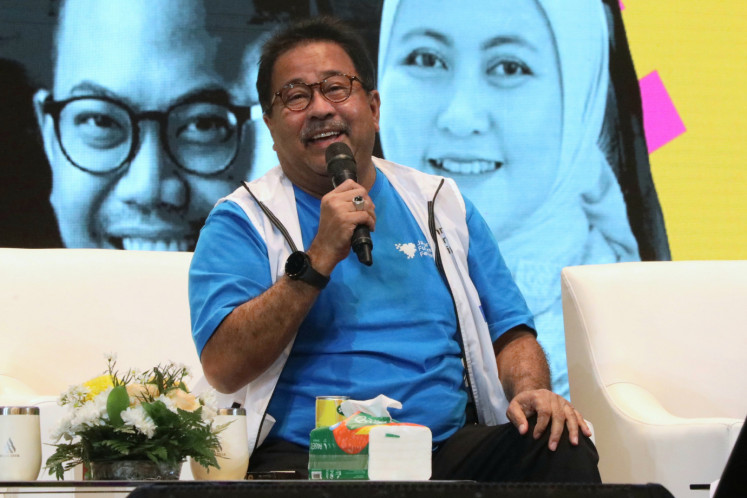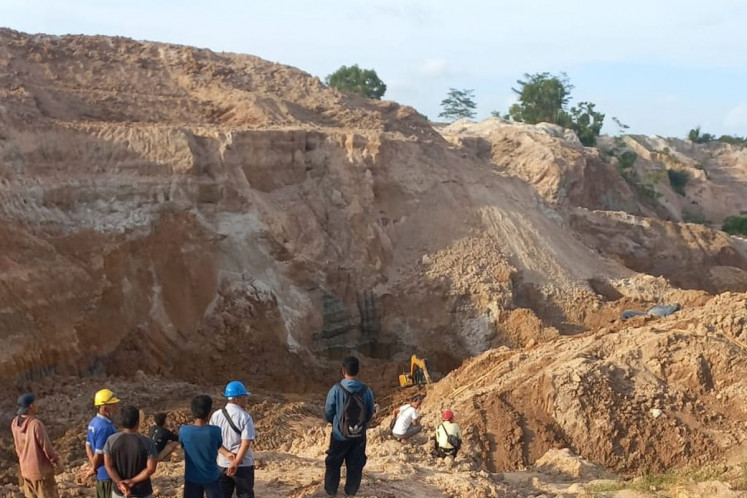Popular Reads
Top Results
Can't find what you're looking for?
View all search resultsPopular Reads
Top Results
Can't find what you're looking for?
View all search resultsPoll shows Jokowi's approval rating falls after protests, but still popular
Burhanuddin attributed the fall to public dissatisfaction over an aborted attempt in August by lawmakers allied with Jokowi to change a minimum age requirement for regional elections, which would have enabled his youngest son Kaesang Pangarep to run for a regional head post in the November regional races.
Change text size
Gift Premium Articles
to Anyone
O
utgoing President Joko "Jokowi" Widodo's approval rating has fallen to its lowest level this year after a move by his allies to change election rules, a poll showed on Friday, although he remains more popular than during most of his 10-year presidency.
The survey of 1,200 people conducted late last month by pollster Indikator Politik Indonesia showed approval of the president fell by 7 percentage points to 75 percent, down from the all-time high of 82 percent in its July poll.
Jokowi had an average rating of 66 percent in his first term and 71 percent in his second term, according to Indikator's chief researcher Burhanuddin Muhtadi. His rating was 79 percent and 80 percent in January and February polls, respectively.
Burhanuddin attributed the fall to public dissatisfaction over an aborted attempt in August by lawmakers allied with Jokowi to change a minimum age requirement for regional elections, which would have enabled his youngest son Kaesang Pangarep to run for a regional head post in the November regional races.
Lawmakers abandoned the plan after heated protests in several cities, which included demonstrators storming the gates of the Senayan legislative complex in Jakarta before being driven back by riot police using water cannon.
Jokowi will on Oct. 20 make way for former rival and current defense minister, Prabowo Subianto, to take over as president after his victory in February's election, which was helped by Jokowi's tacit backing.
Jokowi has served the maximum two terms allowed, and his implied endorsement of Prabowo was widely seen as a move to maintain influence and preserve his legacy. It is unclear what future role, if any, Jokowi might play.
His overall rating remained high because a majority of Indonesians still perceived economic conditions under his administration to be relatively good, Burhanuddin added, including its managing of inflation. His government has also offered many incentives to the public, he added.
Burhanuddin said that although there was dissatisfaction about the state of the country's democracy, a majority of Indonesians understood democracy "in a simple way".
"As long as the economic conditions are good, people will be satisfied with the president," he said.










